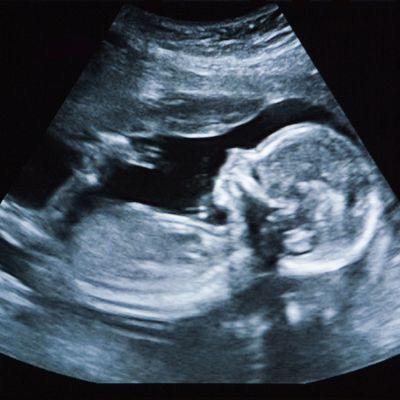
In the late summer of 2007, the musician Will.i.am released what must be the mid-’00s’s most danceable ode to genetic inheritability, “I Got It From My Mama.” In it, the poet asks:
Baby, where’d you get your body from?
Tell me, where’d you get your body from?
Baby, where’d you get your body from?
Tell me, where’d you get your body from?
The answer, of course, is found in response to his call: “I got it from my mama.”
While we can safely assume that Will.i.am’s research was of the hands-on variety, increasing amounts of health studies are finding that people get their bodily predispositions from their parents, down to a genetic level. This is a key thing to know since, per the CDC, the percentage of 6 to 11 year olds who were obese shot up, from 7 percent in 1980 to almost 18 percent in 2012, and for 12 to 19-year-olds, the obesity percentage went from 5 percent to 21 percent. As Jane Brody notes in a column for the New York Times’ Well blog, it’s not just that they’re consuming more calories than they burn. New research is indicating that it’s genetic predispositions that kids get from their parents.
“Although genes are not modifiable, the weight of the mother before and during pregnancy is,” Boston Children’s Hospital obesity specialist David Ludwig told the Times. “Excessive weight gain during pregnancy predicts not just the baby’s birth weight but also the likelihood of obesity in middle childhood.”
Kids’ weight trajectories are being set up before they even exit the womb. A 2004 study in the journal Pediatrics found that if a mother is obese in the first trimester of pregnancy, that child has more than double the risk of obesity between the ages of 2 and 4 (this study was of over 8,000 low-income Ohio children, and broadly speaking, low-income people are more likely to become obese, so you can’t discount environmental factors). But you don’t just get your body from your mother — you get it from your father, too: a 2016 study in Clinical Epigenetics of 23 obese and 44 normal-weight men found that there are epigenetic changes in obese men’s sperm, which could be handed down to their kids. And conversely, a 2013 study of mice found that changes in diet and exercise can improve embryo and fetal development in their offspring.
After birth, Brody reports, breast-feeding reduces the risk of obesity, and Ludwig, the obesity specialist, says thata suckling babe exposed to a range of different flavors through the mother’s milk will more likely enjoy a broader range of nutritious food. From there, it’s key to keep sugary drinks out of the house — they make you fat without filling you up — and modeling right eating. “Young children are like ducklings,” Ludwig says. “They want to do what their mothers do.”
The good news, amongst all the fat news: Americans are starting to eat way, way better than they did before. So the generation raised by millennials is going to be really healthy. Or maybe that’s just my millennial exceptionalism talking.




